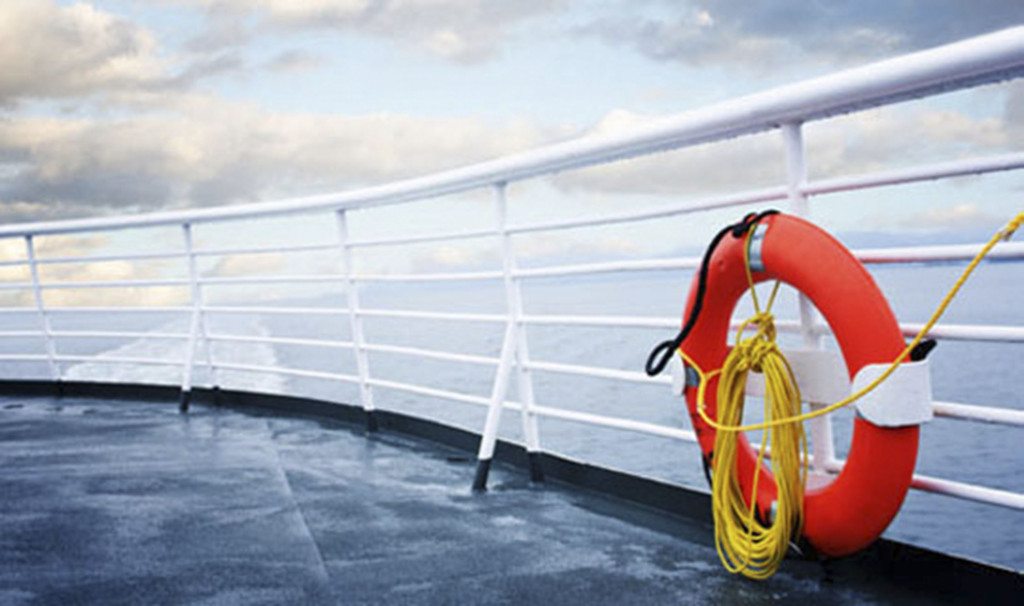With summer underway, Oyster Bay Town Councilman Chris J. Coschignano would like to remind boaters and operators of  personal watercrafts (PWCs) to always put safety first and operate within the rules of the waterways.
personal watercrafts (PWCs) to always put safety first and operate within the rules of the waterways.
“The Town of Oyster Bay has always been a popular attraction for boaters and personal watercraft riders,” said Coschignano. “Unfortunately, each year hundreds of lives are lost due to boating accidents that could have been avoided if the proper safety precautions were taken. With that being said, there are several important safety tips for boaters to follow for the benefit of their own safety as well as the safety of others.”
Wear Your Life Jacket
The majority of boating accident fatalities are caused by boaters not wearing a life jacket. If someone falls overboard, there is little time to get a stowed life jacket. Modern day life jackets, after being approved by the U.S. Coast Guard, are smaller and more comfortable than ever, making it easier to wear it at all times while on board a boat. Children under the age of 13 must always wear a lifejacket unless they are below deck or in an enclosed cabin.
Stay Sober in Your Boat
Operating a boat under the influence of alcohol is not only illegal and a violation of Federal Boating Law but highly dangerous for everyone aboard.
Take America’s Boating Course
Seventy percent of recreational boating accidents are caused by lack of boating experience or knowledge. Factors that contribute significantly to problems on the water include failure to pay attention, carelessness, recklessness, excessive speeding and failure to watch for hazards. A Boater Safety Course offered by your local United States Power Squadron (www.usps.org) is an inexpensive and quick way to learn boat safety and boating regulations.
Get Your Boat Checked
Boats or watercrafts in ill repair are more likely to be prone to accidents than carefully maintained boats. The United States Power Squadron or the Coast Guard Auxiliary (www.uscgboating.org) offers free vessel safety checks that boaters should take every year. Their goal is to prevent boaters from getting equipment-related citations and to reduce safety-related accidents. These checks are educational, helpful and a good follow-up to a water safety course.
Make Sure There’s a Working Carbon Monoxide Detector on Board
Over time the build up from a boat’s engine could create toxic fumes. It’s important to always have a functional carbon monoxide detector so boaters and their families will be alerted to any dangerous toxins.
When Operating PWC, Kayaks and Stand-Up Paddle Boards the ‘Rules of the Road’ Still Apply to You
Smaller or self-propelled, watercrafts must be operated safely. Many safety regulations that pertain to automobile safety also relate to watercraft traveling. If you are operating a small watercraft DO NOT cut in front of larger vessels. Likewise, operators of large boats must be aware of any small vessels they pass, as well as people in the water that may have fallen off their smaller crafts.
Do Not Speed
Speeding is a major problem on the waterways. Not only is it a leading cause of serious injury to boaters, personal watercraft operators and passengers, but significant amounts of property damage are due to the wakes left by boats and watercrafts that are excessive speeding. Boaters and especially Jet Ski operators should be aware that speeding in town waters will not be tolerated. Town Oyster Bay code calls for a five mile per hour speed limit in all channels and within 200 feet of any dock, shoreline or mooring. In creeks, canals and marinas, vessels, including personal watercraft, must be operated dead slow and throw no wake. Fines can and will be levied for violations.
—Submitted by the Town of Oyster Bay































